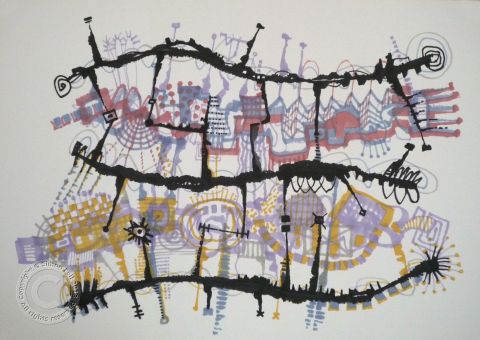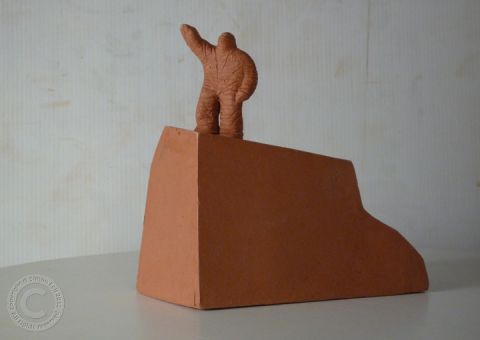Learning from RSI
I am dictating this as I recently developed serious hand and arm problems through RSI (Repetitive Strain Injury) which has resulted from 15 years of intense computer work. Like most artists I have to support my practice with other work. I do web design which requires lots of keyboard and mouse manipulation. Poor posture and over enthusiasm have ended up giving me aches and pains to deal with.
I have had to find alternative ways to write other than typing which is difficult for me at the moment. I have found an app that let’s me talk to it and it turns my spoken words into text. It does this brilliantly but with mixed accuracy, it’s inventive and like predictive texting it sometimes comes up with accidental genius.
An experience shared
When I mentioned RSI at a recent artists meeting I was interested to see how many shared this experience, out of a dozen people present three or four had endured it, some with more serious versions of it than mine. I looked RSI up online, it turns out that it represents a very wide spectrum of ailments so people get it in a different forms with different symptoms and different cures or treatments (where there are any). RSI has long been part of the working landscape and if you suffer from it you have to find ways to deal with it, although if you are lucky you may be able to get help with some of the things that are known to cause it.
Excuses
The rather shocking thing about this is how stereotypically male I have been in response to it. It took me a long time before I got any help even though I had aches and pains which were gradually getting worse. Eventually it was my wife who prompted me to get treatment. This doesn’t reflect well on me, and it makes me wonder how bad things have to get before I act of my own accord and take action to maintain my own health. I am sure I could think of plenty of excuses for this (-too busy, -can’t afford osteopaths, -it might not be that serious in the end etc) but that’s a waste of energy so it’s time to review my attitude and look at an alternative and more effective strategy for getting healthy when things start to go wrong. Wait and see just won’t cut it.
Change is in the air
I think I have managed to start changing my working posture when I am at the keyboard with a lot of help from my osteopath. I have started to dictate my writing and I am told I could take this a lot further if I need to. But I suppose that’s the nub of the problem I don’t really want to make these changes, they have been imposed on me by adverse health and that’s why it’s taken me so long to react appropriately. At this point -although I am working on getting better I really don’t know how it will turn out. Illness is very threatening to the established pattern of my life and it could change it drastically in quite an unwelcome way.
It’s in the balance
So there is a lot at stake, I am highly motivated to recover and to practice better posture in future. If I am lucky this means that I need to learn to strike a better balance between the drive to get work done when I’m at the computer and being aware of my body posture. I will have to find a way to work that is more relaxed and that I can maintain. If I am not so lucky I will have to really think my life plan again. Until I wrote that I didn’t recognise that I have one but I of course I do and now I think about it, it’s quite complex and it’s based on a lot of delicately balanced pieces being in place such as a basically sound body. I really don’t want to be blown off course if I can help it.


